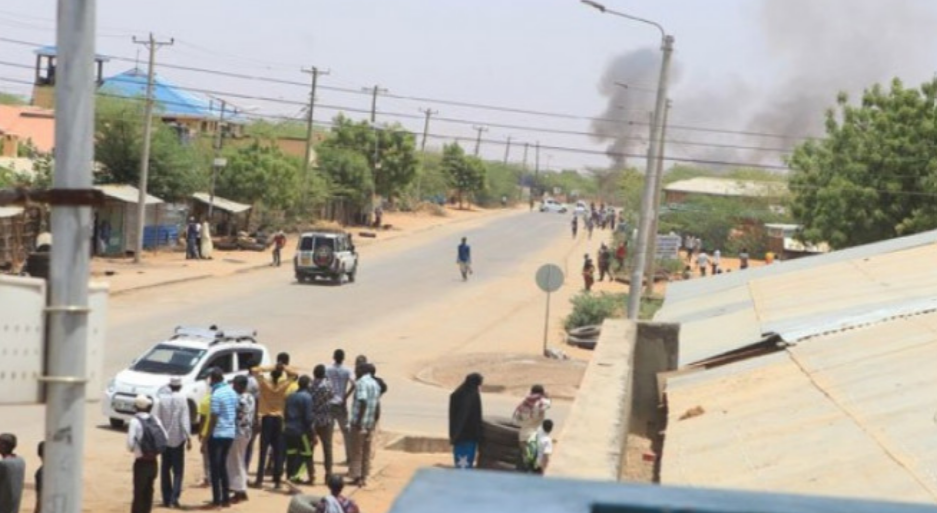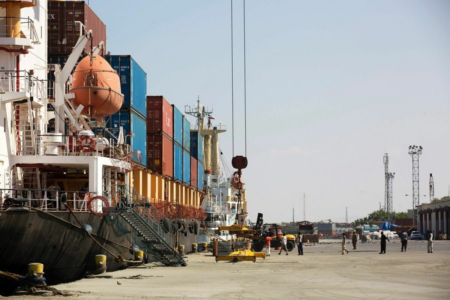Tensions are escalating in Mandera County as Somali armed troops linked to Jubaland regional administration reportedly entered Kenyan territory.
The development has triggered widespread concern among local residents and political leaders over sovereignty and security.
Jubaland Forces Cross Border Amid Somalia Clashes
Residents and local officials suspect that Jubaland Security Forces, displaced from nearby Beled-Hawo following violent clashes with Somalia’s federal army, have set up unauthorized positions in Mandera, including at local schools and farms.
Displacement and fear are growing: many families have fled, businesses remain closed, and schools have been shut down.
Political Leaders Sound the Alarm
Mandera Senator Ali Ibrahim Roba described the situation as a direct threat to Kenya’s sovereignty, warning that Somali armed troops are consolidating power inside town limits.
Governor Mohamed Adan Khalif added that Mandera must not become a “Somali battleground,” demanding the troops’ immediate withdrawal.
County Assembly members delivered a formal letter to the county security committee, urging urgent relocation of Jubaland forces and reinforcing the need to protect residents’ safety.
Jubaland Denies Crossing into Kenya
However, Jubaland officials reject claims of incursion.
Vice President Mohamed Sayid assured media sources that their forces remain along the border in Somalia and have not entered Kenyan territory.
Despite this, locals continue to report presence of Somali armed troops inside Mandera.
Government Attempts to Downplay Tensions
Kenya’s Interior Secretary Kipchumba Murkomen sought to calm the situation by stating there’s “no cause for alarm” and cautioning against politicizing security issues.
However, his message has done little to quell growing anxieties among residents.
Read also: Somalia to Resume Voter Registration for Historic One-Person, One-Vote Elections 2026
Broader Implications
Mandera occupies a strategic location at the intersection of Kenya, Somalia, and Ethiopia—making it especially vulnerable to spillover from regional conflicts.
The disputed presence of Somali armed troops in Kenyan territory not only heightens local insecurity but also strains diplomatic relations between Nairobi and Mogadishu.
The reported deployment of Jubaland forces in Mandera has triggered a security crisis, spurring demands from Kenyan leaders to restore the region’s sovereignty.
As political tension mounts, the situation underscores the fragility of border dynamics in the Horn of Africa—spotlighting how Somali internal conflicts continue to reverberate across borders.
Overview: Somali Armed Troops in Kenya — A Rising Security Concern
In recent years, Kenya has witnessed an increasing and complex military presence of Somali armed troops and conflict spillover, particularly along its northern border.
1. Operation Linda Nchi (2011–2012)
Kenya deployed troops into southern Somalia as part of Operation Linda Nchi to tackle al-Shabaab insurgency.
This operation, later transitioned into AMISOM (African Union Mission in Somalia) and then ATMIS, helped counter terrorist activities but also escalated regional tensions.
Kenya reaffirmed its commitment to fully withdraw its troops by the end of 2024.
2. Al-Shabaab Cross-Border Attacks
Kenya continues to face regular militant incursions from Somalia.
Notable incidents include a donkey cart explosion in Mandera that killed a police officer and injured four, suspected to be an al-Shabaab retaliation, and a deadly attack on a police camp in Garissa where militants killed six reservists and looted arms.
3. Battle of Ras Kamboni and Troop Spillover (2024)
The Battle of Ras Kamboni in December 2024 saw a confrontation between Somalia’s federal army and Jubaland forces.
Reports indicate that around 600 Somali National Army soldiers fled into Kenya, where they were temporarily hosted by Kenyan Defense Forces before being disarmed.
Key Insights
Kenya’s proximity to internal Somali conflicts — from federal-state clashes to insurgent attacks — continues to exacerbate border instability.
These incursions strain diplomatic relations and challenge national security.
Monitoring and proactive coordination remain vital for stabilizing the Kenya–Somalia border.








